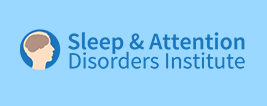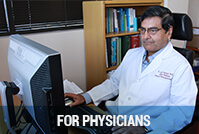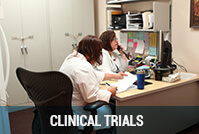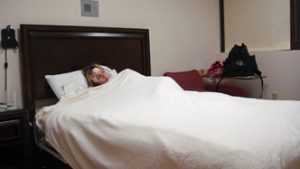Dr. Sangal Talks to MASM on Covid-19 and Sleep Clinic Operations
Dr. Sangal Talks to MASM on Covid-19 and Sleep Clinic Operations
Dr. Sangal’s talk to MASM (Michigan Academy of Sleep Medicine) on Covid-19 and Sleep Medicine took place on June 12, 2020. He spoke about sleep lab ramp up, sleep clinic operations and Covid-19 precautions.
Michigan had sustained community transmission of Covid-19 in March 2020. Michigan was then in Phase 1 (uncontrolled growth) of Covid-19. Governor Whitmer ordered that non-essential medical services be stopped. Most outpatient health-care facilities closed for on-site non-emergent services. Most sleep disorders centers also closed. Most of Michigan is now in Phase 4 (improving) of the MI Safe Start Plan (Traverse city region and the UP are in phase 5 – containing). Community transmission is now minimal. The governor has ordered that non-essential medical services can resume. Outpatient health-care facilities may open. Sleep disorders centers have re-opened or are re-opening.
Reopening sleep disorders centers must follow the rules in paragraph 1 of the MI Executive Order 2020-97, for all business or operations that are permitted to require their employee to leave home for work. They must develop a Covid-19 preparation and response plan and make it available. They must designate a supervisor on each shift and provide training. Staff must be screened at entry for Covid-19 symptoms, and temperature taken. Masks must be provided to employees, and everyone kept 6 feet from each other. Cleaning supplies must be available.
Reopening sleep disorders centers must also follow paragraph 9 for outpatient health care facilities. Signs at entrances must be posted requiring all patients to wear face coverings. Waiting areas must allow six feet between patients, with contact-less sign-in. No companions are allowed. Patients must be screened for Covid-19 symptoms and temperatures taken. There must be procedures in place for patients with symptoms or a high temperature. Hand sanitizer and face coverings must be provided at patient entrances. Staff must have surgical masks, and appropriate personal protective equipment (PPE) including N95 masks, gloves, face shields/goggles, and gowns. Patients must be offered telehealth services and special hours for highly vulnerable patients. Rooms must be cleaned between patients, with facility disinfection if there is a suspected or confirmed case.
CDC Table 1 (Disinfection and sterilization) lays out disinfecting procedures. Semi-critical items like CPAP masks, tubing and humidifier chambers should get high-level disinfection. Some semi-critical items such as thermistors should get intermediate-level disinfection. Non-critical items should get low-level disinfection. Low-level disinfection will destroy the Covid-19 virus. EPA List N is a list of approved disinfectants.
Covid-19 Mitigation Strategies for Sleep Disorders Centers
The American Academy of Sleep Medicine (AASM) has Covid-19 mitigation strategies for sleep disorders centers. When community transmission was substantial, it was recommended to postpone and reschedule PAP titrations and non-emergency sleep lab testing. Mail delivery of home sleep apnea testing devices with disinfection and a 72-hour wait before reuse was advised. When community transmission fell to minimal to moderate, sleep lab testing for those not at high risk of Covid-19 could safely resume. With community transmission now minimal to none in Michigan, sleep labs can resume normal services. Monitoring of state and local public health communication for increased community transmission is important.
The CDC has now removed recommendations to postpone elective procedures. PAP use and titration can create aerosols of virus particles. The CDC recommends Covid-19 patients be in a single-person room with door closed. A negative pressure room is necessary for Covid-19 patients undergoing PAP titration, but not for non-Covid-19 patients. Dr. Sangal suggests that patients with Covid-19 exposure, symptoms, or a high temperature, should be rescheduled. He also recommends using a 99.97% efficient HEPA filter that is sufficient for the bedroom size, as required by the CDC for a protective environment room in a general hospital. It should run all night during a PAP titration with the door closed. It should continue running for enough time after the patient leaves to remove 99.9% of virus particles. The time required is calculated based on air changes/hour. PPE for technologists is suggested.
In summary, community transmission in Michigan has dropped from sustained, to minimal to none. With proper precautions, sleep disorders centers can now safely re-open and render sleep medicine services. They must, of course, comply with executive orders and guidance from appropriate agencies. They must screen all staff and patients, and take temperatures (twice daily for staff). They must require and provide face coverings for patients, surgical masks for staff. HEPA filtration with PPE for technologists is suggested for PAP titrations.










